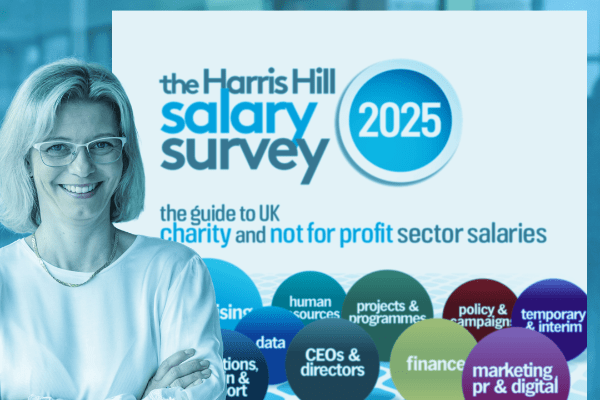Can we realistically put in the hard work to achieve our career goals but avoid burnout? How do we set personal and work boundaries when technology blurs the perimeters and we’re expected to be ‘always on’?
This month, guest writer Nicola Greenbrook explores why it’s essential for our health, wellbeing and productivity to not always be working.

How do you switch off? No, let me rephrase that. Do you ever switch off? Findings from some highly credible research I recently commissioned (a straw poll via Facebook and Instagram Stories) indicated that the majority of people find it very difficult, if not impossible, to disengage from their job at the end of the working day.
Always on
Some key themes emerged from my study. Almost all respondents never, ever switch off entirely and an ‘always on’ mentality was the norm. Most permanently keep an eye on emails and remain digitally visible to their manager or team even when on holiday overseas.
Many were secret email-checkers outside of work; sneaking away from their partner to hide in the loo and catch up, or were ‘just popping back to the apartment’ on holiday to check in. For others, although they left work on time due to childcare responsibilities or to meet friends, the reality was this; when the children were in bed, or once the night out was over, they automatically started working again.
For many people, work is their life. If you’re a CEO, single-handedly running your own business or have been recently promoted to managerial level, it’s helpful to keep things ticking over out of hours. Sometimes burning the midnight oil or waking at 4.00 am with the sweats was down to sheer excitement, or with a fantastic idea pinging into their head.
However, this was often countered with constant worry and anxiety about work tasks building up or having too much to do if they switched off.
So, always on.
Working 9 - 5 (or 11, if you're at home)
According to the ONS Labour Force Survey, as reported by BBC News, more than 1.54 million people work from home for their main job - up from 884,000 ten years ago. Working from home may offer freedom and flexibility, but it can be difficult to resist the urge to do ‘just one more thing’, to skip breaks and lunch or to set a definitive finishing time.
Jen David, an experienced CV Consultant is familiar with the ‘always on’ mentality as she works exclusively from home.
She knows all too well the challenges of ‘splitting yourself in two when it’s not possible to finish by the time the school run is due; flicking between the work screen and the homework screen’. In herarticle for CV Library, she shares her strategies for staying focused at home and not succumbing to the domestic distractions but, importantly, knowing when to stop.

Why always on needs to be off
People Management magazinereports on the prevalence of the ‘always on’ mentality which can be a downside of more empowering flexible working methods.
The CIPD’s Health and Wellbeing at Work Survey 2018, notes the increase of ‘leaveism’ which has been observed in nearly two-thirds of organisations over the last year.
The concept may be new, but it’s likely that HR professionals, as well as individuals themselves, will be familiar with the behaviours - which include catching up on a backlog of work while on annual leave, taking work home or working when sick. Habitually working during what should be relaxing time is not only unhealthy, but could have a detrimental impact on individual performance and organisational productivity.
Could it be that the more frequently we check emails, the less productive we come? In our attempts to be efficient, are we burning ourselves out and becoming more stressed?
The World Health Organisationnow recognises burn-out as a medical condition whose characteristics include ‘feelings of energy depletion or exhaustion’ and ‘reduced professional efficacy’.
If you find it hard to unplug, you may keep working through the stress and fatigue - which for some is a badge of pride or honour - without realising the damage you could be doing.
How to switch off
How do we find the right balance between nailing our professional accomplishments and not compromising our mental wellbeing?
In her bookHow to Not Always Be Working, author Marlee Grace believes that one of the most fundamentally important things you can do to unplug, is to turn your phone off and step away. Even if your work is your passion, the spirit of this idea still applies; with no phone, you’re connecting with the world, but not digitally watching it.

Here are some other tips to help you switch off:
►Make the ‘one more thing’ you do a small task which, according toThe Harvard Business Review, ends your day on a positive note of completion. A short phone call, signing a document or firing off a quick email response can give you a gratifying sense of one less thing to do tomorrow, without pushing yourself too hard.
►Use your lunch break as the cornerstone of your mission to unplug. Arrange a team get together, take your book to the park or seek out local, free activity that powers your legs and/or your brain. This Time Outis particularly good if you’re London-based and need some digital-free headspace.
►Try to lead by example; if your team perceive you as being permanently available there’s the risk of blurring the message and setting unhelpful expectations.
►Let voicemail take over on a non-working day; allow calls to go straight to voicemail so you can field the non-urgent ones and decide how to prioritise any issues. This avoids getting caught in the ‘yes’ trap if you’re caught off guard, or rushing into decisions.
►Preserve your personal time - and DO NOT compromise on this. The more you sacrifice seemingly insignificant parts of yourself or your life for work - like sleep, books, TV or time with friends - the more resentful, unhappy and ultimately unproductive you may become. Trying reading on your commute rather than scrolling or emailing, and keep your phone out of sight. It feels really, really good.
►Set a time slot - If you really must keep on top of things outside of any traditional working hours and doing ‘one more thing’ enables you to crack on with XYZ with a clear conscience and nothing hanging over you - proceed. However, set yourself a time slot; like one hour on a Sunday evening to nail your Monday to-do, but then be strict with yourself and don’t sneak back in.
If you’re always switched on, now might be the best time to reframe how, and why, you work the way you do. If you don’t respect your time, then how will you expect others to?
Try it today, this evening or tomorrow (if you’re reading this at 2.00am, while checking emails instead of sleeping)...
Nicola Greenbrook - HR Specialist & Freelance Writer
More from Nicola Greenbrook:
► I quit! How to leave a job gracefully
► How to be productive at work
►How to turn rejection into a success story
► Back to the blog homepage
-

Opportunity for all
Find out how we’re working to deliver more diverse, equitable and inclusive recruitment…
-

Recruiting a charity CEO?
Our executive recruitment specialists have an exceptional record of successful CEO, chair, trustee and…
-

Charity sector salaries
Our 2025 Salary Survey has the latest rates and expert insight for roles throughout the sector.













